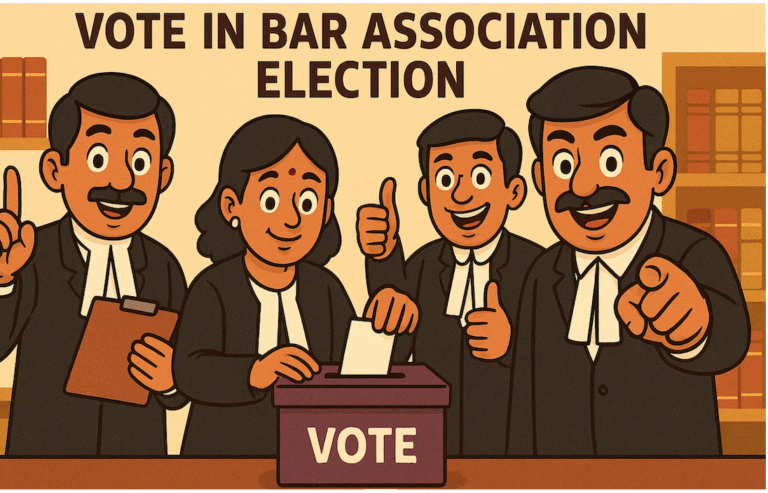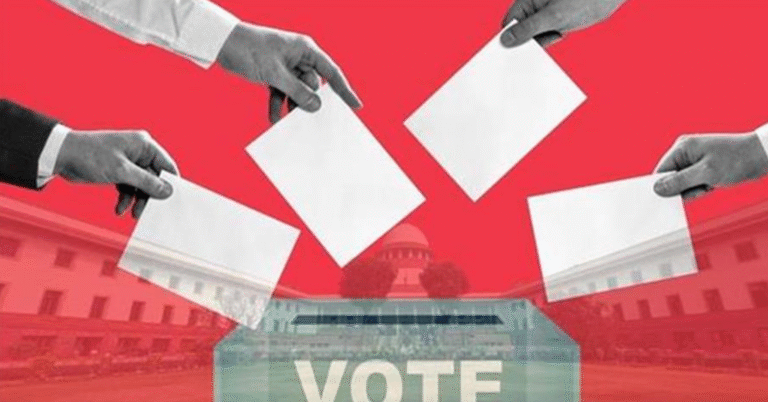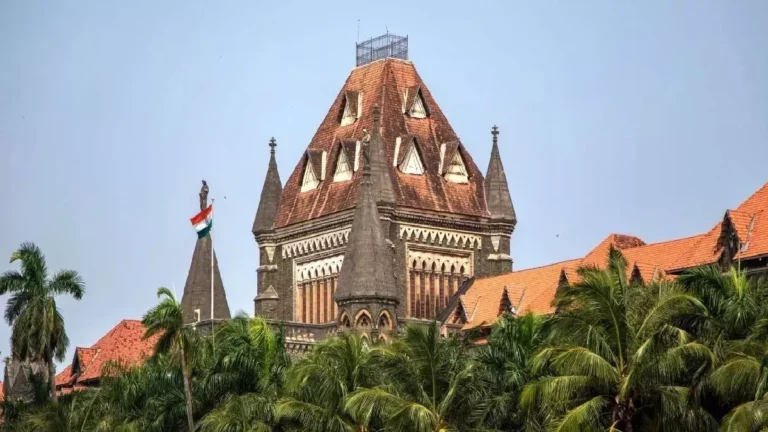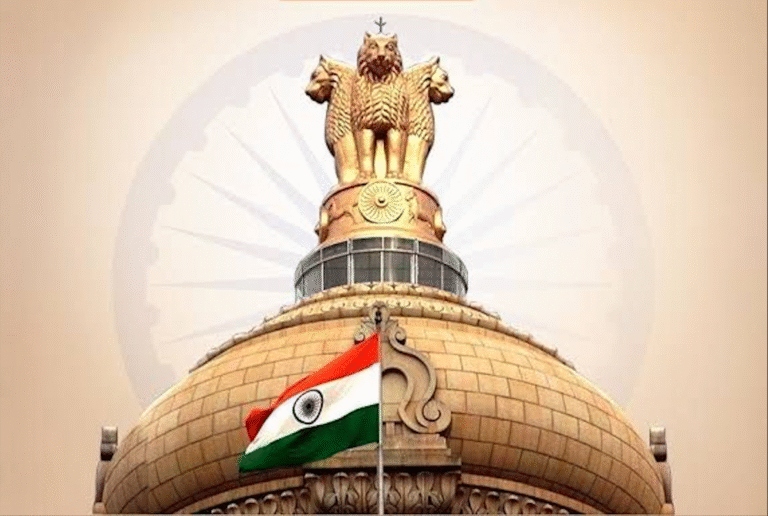[Biggest Breaking] Supreme Court Strongly Condemns Bombay High Court for Ignoring Binding Precedents and Passing Whimsical Orders; The apex court sternly warned that it is not the “mood of the judge” but the law that must prevail, emphasizing that adherence to the law declared by the Supreme Court is a constitutional mandate — not a matter of personal discretion.
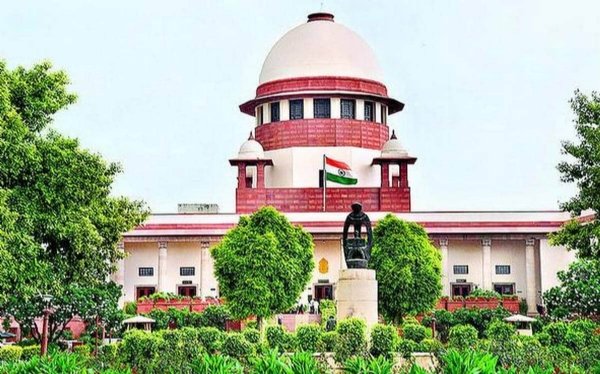
The Court cautioned that judges who disregard binding precedents not only undermine the rule of law, bring disrepute to judiciary but also impose unnecessary burdens on litigants through additional costs, delays, and uncertainty in the justice delivery system.
The apex court observed that judges who fail to follow binding precedents betray the trust reposed in them by the nation, as such conduct amounts to a breach of the judicial oath and a grave disservice to the judiciary and to the litigants whose cause they are meant to serve.
The Court further warned that such judges bring disrepute to the entire judicial system, erode public confidence in the rule of law, and compromise the integrity of justice delivery. Rebuking such behaviour, the Court remarked that “judges do not sit to settle scores; the gavel is an instrument of reason, not a weapon of reprisal.”
It added that any attempt to resist or disregard binding authority undermines the unity of law, imposes unnecessary burdens on litigants through cost and delay, and creates a dangerous perception that justice depends on the identity of the judge rather than the strength of the law.
In two judgments including recent judgment dated November 7, 2025, the Supreme Court issued a strong condemnation of the Bombay High Court for ignoring binding precedents and delivering whimsical orders, reiterating that under Article 141 of the Constitution, the law declared by the Supreme Court is binding on all courts and authorities across the nation and .
The recent rulings of the Supreme Court have further intensified the troubles of Bombay High Court Chief Justice Chandrashekhar, who, on October 16, 2025, reportedly took the view that Supreme Court judgments do not constitute the law of the land and that he is not bound to consider binding precedents. He allegedly refused to follow Supreme Court rulings and went a step further by warning that any advocate citing judgments of the Supreme Court would be held guilty of contempt and taken into custody.
A landmark judgment was delivered on November 7, 2025, by a Bench comprising Hon’ble Justices Vikram Nath and Prasanna B. Varale.
In a path-breaking ruling in Ratilal Jhaverbhai Parmar v. State of Gujarat, 2024 SCC OnLine SC 298, a Bench comprising Hon’ble Justices Dipankar Datta and Prashant Kumar Mishra delivered a stern message to the judiciary on the duty of discipline and accountability.
The Court emphatically held that judges who neglect, omit, or refuse to apply the law and ratio laid down by the Supreme Court are guilty of betraying the trust reposed in them by the nation. Such conduct, it ruled, amounts to a breach of the judicial oath and a serious disservice to the entire judicial institution and to litigants, for whose benefit the judiciary exists.
The Bench further observed that such judges bring disrepute to the entire judicial system and warned that in today’s era of public scrutiny and media transparency, judges are themselves under the lens of public accountability. The Court stressed that society expects every High Court judge to be “a model of rectitude, an epitome of integrity and professionalism, and a champion of moral excellence.”
While appreciating that most judges across the country perform commendably despite immense workload, the Supreme Court noted that instances of judicial defiance and indiscipline, though rare, tarnish the image of the judiciary and could easily have been avoided with care, caution, and respect for binding precedent.
A Bench of Justices Vikram Nath and Prasanna Varale observed that the High Court’s approach reflected an attempt “to avoid a binding precedent rather than apply it,” emphasizing that judicial discipline requires adherence to the doctrine of precedent.
The Court stressed that Articles 141 and 144 of the Constitution make obedience to Supreme Court law a constitutional mandate, not an option. It warned that judgments resisting binding authority undermine the unity of law, burden litigants, and create a perception of judicial arbitrariness.
Rebuking the conduct of the High Court Bench, the Supreme Court stated that such actions convey “a measure of pettiness” inconsistent with judicial duty, adding that “the gavel is an instrument of reason and not a weapon of reprisal.”
The ruling reinforces the principle that judges must follow binding Supreme Court decisions, and failure to do so threatens judicial credibility and public confidence in the justice system.
These ruling serves as a stern reminder that the law declared by the Supreme Court is the law of the land and is binding upon all courts and authorities throughout India, in accordance with Article 141 of the Constitution of India.
Additionally, CJI Bhushan Gavai’s remarks on November 7, made in the presence of Bombay High Court Chief Justice Chandrashekhar, that “judges are not feudal lords,” were widely viewed as a subtle yet strong message to judges like CJ Chandrashekhar, who have been accused of defying Supreme Court precedents and acting arbitrarily.
Verious Bar Associations have come down heavily on the Collegium, condemning the appointment of Justice Chandrashekhar as Chief Justice of the Bombay High Court. The associations stated that “a person lacking even elementary legal knowledge, yet behaving as if he is above the Constitution and the Supreme Court, has no moral right to preside over one of the country’s premier High Courts.”
They have demanded his immediate suspension of judicial functions and transfer out of Maharashtra, citing that his actions have brought the entire judiciary into disrepute.
These two judgments are being hailed as landmark decisions and a ray of hope for lakhs of victims who have long suffered because of arrogant, biased, and arbitrary judges misusing their constitutional powers with impunity. For decades, countless litigants and advocates have faced humiliation, injustice, and intimidation in courts where a few judges placed their personal whims above the rule of law.
Legal experts and citizens across the country have applauded hon’ble judges and welcomed these rulings as a historic step toward restoring judicial accountability and reaffirming the supremacy of the Constitution over judicial ego. The Supreme Court’s clear message — that judges are not feudal lords but servants of the Constitution — has resonated deeply with the legal fraternity and the common man alike.
These judgments mark the beginning of a new era of judicial responsibility and transparency, ensuring that no judge can act as a law unto himself, and that the authority of the Supreme Court and the sanctity of Article 141 remain inviolable.
ACTION TAKEN BY THE SUPREME COURT AGAINST SUCH JUDGES. :-
Recently, in Shikhar Chemicals v. State of U.P., 2025 SCC OnLine SC 1653, Hon’ble Justice J.B. Pardiwala of the Supreme Court of India strongly condemned the poor level of legal understanding displayed by a High Court Judge. The Court directed the Chief Justice of that High Court not to assign any judicial work to the concerned judge, emphasizing that such incompetence and disregard for settled law cannot be tolerated within the judiciary.
In the present context, the situation is even more alarming, as the person committing such grave errors is Justice Chandrashekhar, the Chief Justice of the Bombay High Court himself. His conduct reveals ignorance of the most fundamental constitutional principle — that under Article 141 of the Constitution, “the law declared by the Supreme Court is binding on all courts and authorities in India, including judges themselves.”
SUMMARY OF THE LAW REGARDING BINDING PRECEDENTS AND CONSEQUENCES OF ITS NON FOLLOWING :-
It is a well-settled principle that every Judge, Chief Justice, and Bench of co-equal or smaller strength is bound to follow the law laid down by superior courts and cannot take a contrary view against binding precedents. Courts are obligated to consider the judgments relied upon by the parties — even those from other High Courts — and must record the ratio decidendi and reasons for disagreement if they choose not to follow them.
The Supreme Court has repeatedly cautioned that judges cannot evade binding precedents merely by stating that the facts of a case are different. Once a declaration of law is made in favor of an aggrieved citizen, others similarly situated are entitled to the same benefit without being compelled to approach the courts again. Judges are, therefore, duty-bound to apply the correct law and cannot plead ignorance of binding decisions.
It has been further ruled that judges must ensure that their orders and decisions do not create doubt or confusion regarding the legal position in the minds of any authority or citizen, and must also take care that their rulings do not conflict with any other binding decision or existing law. This obligation flows directly from the principles of judicial discipline and constitutional supremacy under Article 141 of the Constitution of India. Any judicial order passed in defiance of a binding precedent stands vitiated in law, and such a judge is guilty of “judicial adventurism.” Under Sections 2(b) and 12 of the Contempt of Courts Act, 1971, such conduct attracts contempt proceedings, and any citizen has the right to file a contempt petition against errant judges. There is no immunity for judges from contempt action when they act in wilful defiance of Supreme Court rulings.
Furthermore, judges who act in such disregard of the law are deemed guilty of legal malice, judicial dishonesty, and perversity, and are also liable to face disciplinary and criminal action, including suspension, dismissal, or prosecution under Sections 166, 218, 219, and 220 of the Indian Penal Code. A judge committing breach of oath is also liable to removal, independent of the citizen’s right to challenge such orders.
The Supreme Court has reiterated these principles in a long line of judgments, including:-
[ Harish Arora vs The Dy. Registrar 2025 SCC On Line Bom 2853; Pradip J. Mehta v. Commissioner of Income Tax, (2008) 14 SCC 283, ;Union of India v. K.S. Subramanian, (1976) 3 SCC 677, Re: C. S. Karnan (2017) 7 SCC 1; Suprita Chandel vs. Union of India (2024 INSC 942), R.R. Parekh Vs. High Court of Gujrat (2016) 14 SCC 1, Superintendent of Central Excise Vs. Somabhai Ranchhodhbhai Patel AIR 2001 SC 1975, Umesh Chandra Vs State of Uttar Pradesh & Ors. 2006 (5) AWC 4519 ALL; Prominent Hotels Vs. New Delhi Municipal Corporation 2015 SCC OnLine Del 11910, Re: M. P. Dwivedi (1996) 4 SCC 152.; State Bank of Travancore V/s. Mathew K.C., (2018) 3 SCC 85, Emkay Exports v. Madhusudan Shrikrishna, 2008 SCC OnLine Bom 598 (Bom), Vijay Shekhar v. Union of India, (2004) 4 SCC 666, Rabindra Nath Singh v. Rajesh Ranjan Pappu Yadav, (2010) 6 SCC 417; Kamisetty Pedda v. Chinna 2004 SCC OnLine AP 1009; Som Mittal v. Govt. of Karnataka, (2008) 3 SCC 574 In , R. C. Pollard vs Satya Gopal Mazumdar 1943 SCC OnLine Cal 153; K. C. Chandy Vs. R.Balakrishna Pillai, AIR 1986 Ker 116, Baradakant Mishra Vs. Registrar of Orissa High Court (1973) 1 SCC 374; Smt. Prabha Sharma Vs. Sunil Goyal and Ors. (2017) 11 SCC 77; Legrand Pvt. Ltd. 2007 (6) Mh.L.J.146; Govind Mehta Vs. State of Bihar (1971) 3 SCC 329, K. Rama Reddy Vs State 1998 (3) ALD 305, Raman Lal Vs. State 2001 Cri. L. J. 800; Jagat Jagdishchandra Patel Vs. State of Gujrat 2016 SCC OnLine Guj 4517; Shrirang Yadavrao Waghmare v. State (2019) 9 SCC 144, Muzaffar Husain vs. State 2022 SCC OnLine SC 567 ; S.P. Gupta v. Union of India, 1981 Supp SCC 87; Garware Polyester Ltd. Vs. State of Maharashtra. 2010 SCC On Line Bom 2223, Shreyas Dange vs. State of Maharashtra through its Principal Secretary, 2018 SCC OnLine Bom 21510; Tata Mohan Rao v. S. Venkateswarlu And Others etc. 2025 INSC 678; Vishal Ashwin Patel v. CIT (2022) 14 SCC 817; Neeharika Infrastructure Pvt. Ltd. 2021 SCC OnLine SC 315 ]
In the case of Union of India v. K.S. Subramanian, (1976) 3 SCC 677, it is ruled as under;
“12. We do not think that the difficulty before the High Court could be resolved by it by following what it considered to be the view of a Division Bench of this Court in two cases and by merely quoting the views expressed by larger benches of this Court and then observing that theses were insufficient for deciding the point before the High Court. It is true that, in each of the cases cited before the High Court, observations of this Court occur in a context different from that of the case before us. But, we do not think that the High Court acted correctly in skirting the views expressed by larger benches of this Court in the manner in which it had done this. The proper course for a High Court, in such a case, is to try to find out and follow the opinions expressed by larger benches of this Court in preference to those expressed by smaller benches of the Court. That is the practice followed by this Court itself. The practice has now crystallized into a rule of law declared by this Court. If, however, the High Court was of opinion that the views expressed by larger benches of this Court were not applicable to the facts of the instant case it should have said so giving reasons supporting its point of view.”
That in Pradip J. Mehta v. Commissioner of Income Tax, (2008) 14 SCC 283, the Hon’ble Supreme Court has categorically held that it is mandatory for every Court, including High Courts, to refer to and discuss the judgments of other High Courts, particularly when taking a contrary view.
In Subrata Roy Sahara v. Union of India, (2014) 8 SCC 470; it was held by the Supreme Court that the two Judge bench of Supreme Court will be guilty of contempt of three judge bench order if it takes contrary view.
BRIEF BACKGROUND OF THE CASE:-
The Bombay High Court has constituted a Five-Judge Constitution Bench to hear a case concerning serious allegations of corruption, forgery, and perjury of court records against Justice Revathi Mohite Dere. The allegations relate to her conduct while granting bail to Ms. Chanda Kochhar, an accused in a multi-thousand-crore banking fraud involving the Videocon Group, and to another accused in a case of attempt to murder police officers, allegedly by suppressing the CBI report and court orders in violation of Supreme Court guidelines.
These allegations were raised in Public Interest Litigation (PIL) No. 6900 of 2023 and were publicly discussed by Adv. Nilesh C. Ojha. A similar plea earlier filed by the Bombay Bar Association, seeking contempt action on comparable grounds, was rejected both by the Chief Justice of India and the Bombay High Court on 18.04.2023. However, by allegedly suppressing these facts, fresh contempt proceedings were initiated on the basis of a complaint letter dated 04.04.2025 written by Justice Revathi Mohite Dere herself.
In response to the contempt notice, Adv. Ojha submitted several binding Supreme Court judgments, asserting that the proceedings were illegal and liable to be dropped, and that Justice Revathi Mohite Dere and other conspirators should instead face action and be impleaded as party respondents.
Nevertheless, the Bench headed by Chief Justice Chandrashekhar, by its order dated 17.09.2025, rejected the request to add Justice Dere as a party and directed the initiation of separate contempt proceedings against Adv. Ojha, relying upon overruled Supreme Court judgments. The order also contained adverse strictures against sixteen advocates without granting them an opportunity of being heard.
On October 6, 2025, the Supreme Court, in P. Radhakrishnan v. Cochin Devaswom Board, 2025 SCC OnLine SC 2118, set aside a similar order of a High Court, issuing a categorical warning to judges against passing any order without hearing the parties. The Court further cautioned that judges, by their conduct or orders, must not intimidate parties or advocates, observing that such behaviour creates a chilling effect on litigants, discourages citizens from approaching courts, and ultimately erodes the rule of law.
Relying on this and several other Supreme Court judgments, Adv. Nilesh C. Ojha sought recall of the order dated 17.09.2025, pointing out that sixteen advocates had already filed writ petitions seeking compensation for violation of their rights due to the said order. He also submitted that Chief Justice Sh. Chandrashekhar, being personally involved, cannot be a judge in his own cause and must recuse from the case, citing multiple proofs of conflict of interest and reasonable apprehension of bias.
However, instead of considering the binding precedents, Chief Justice Chandrashekhar reacted with hostility, allegedly threatening the advocate that relying upon various Supreme Court judgments and seeking recusal would amount to contempt, and that he would be taken into custody. The application was thereafter rejected by disregarding binding precedents and adopting a view directly contrary to the law declared by the Supreme Court.
In his order dated October 16, 2025, the Chief Justice went so far as to state that “in this country, there is no law mandating the Court to consider submissions, prayers, pleadings, or binding precedents”, and further held that advocates who rely upon multiple Supreme Court judgments could be held guilty of contempt and taken into custody.
He also refused to give any reasoned order while rejecting the recusal plea, merely recording that the prayer “did not require consideration.” The refusal to record or even examine Supreme Court judgments amounted to a direct defiance of constitutional duty under Article 141, exposing a pattern of judicial indiscipline and disregard for the rule of law.
The Supreme Court has, in two recent judgments, condemned similar conduct of High Court judges, terming such acts as a grave threat to judicial integrity and public confidence.
In Ratilal Jhaverbhai Parmar v. State of Gujarat, 2024 SCC OnLine SC 298, it is ruled that;
“ We are surprised, not a little, that the strong reminders issued by this Court from time to time have had little effect on the high courts in the country and that decisions, binding under Article 141 of the Constitution, are being persistently ignored. It has been stressed time and again over the years and we feel pained to observe, once more, that neglect/omission/refusal to abide by binding precedents augurs ill for the health of the system. Not only does it tantamount to disservice to the institution of the judiciary but also affects the administration of justice. For a 3 learned Judge to deviate from the laid down standards would be to betray the trust reposed in him by the nation. We sincerely hope that learned Judges of the high courts while being careful and cautious will remain committed to the service of the litigants, for whom only they exist, as well as the oath of office that they have taken so that, in future, we are not presented with another case of similar nature to deal with.
It cannot be gainsaid that in today’s world, particularly when more and more people are showing interest in court proceedings and there is wide coverage thereof on social media platforms, the presiding officers of courts are equally at the centre of attention as the controversy that is involved and the manner of its resolution. The society expects every Judge of a high court, so to say, to be a model of rectitude, an epitome of unimpeachable integrity and unwavering principles, a champion of moral excellence, and an embodiment of professionalism, who can consistently deliver work of high-quality guaranteeing justice.
….instances such as the one under consideration, which we view as nothing more than an aberration, bring disrepute to the judicial system of the country and show the entire judiciary in poor light. This, in our opinion, could have well been avoided with a little bit of care and caution, and deference to the decisions on the point by this Court. ”

